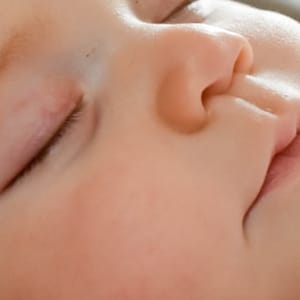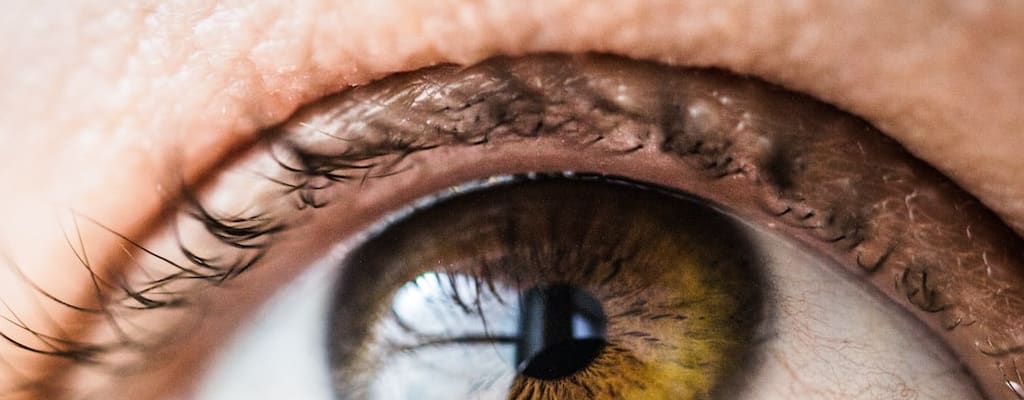close one’s eyes: Idiom Meaning and Origin
What does ‘close one's eyes’ mean?
The idiom "close one's eyes" means to ignore or overlook something intentionally, often to avoid facing unpleasant or uncomfortable truths or situations.

Idiom Explorer
The idiom "shut one's eyes" means to consciously ignore or disregard something, often a problem or truth, by refusing to see or acknowledge it.
The idiom "keep quiet" means to remain silent or not speak, especially when it is important to do so in order to maintain secrecy, avoid trouble, or not reveal information.
The idiom "keep one's mouth shut" means to remain silent or not reveal information, often to avoid causing trouble or trouble for oneself. It emphasizes the importance of not speaking or disclosing something that should remain secret or private.
The idiom "keep one's lips sealed" means to keep quiet or not reveal a secret or confidential information.
The idiom "keep one's head down" means to avoid drawing attention or staying out of trouble in order to stay safe or unnoticed in a dangerous or difficult situation.
The idiom "keep one's eyes peeled" means to stay alert and watchful, paying close attention to one's surroundings in order to notice any important or significant details or changes.
The idiom "keep one's ears open" means to be attentive and listen carefully for information or opportunities.
The idiom "keep one's cards close to one's chest" means to keep one's thoughts, plans, or intentions secret or hidden in order to maintain an advantage or not reveal too much information.
The idiom "keep an eye open" means to remain alert or vigilant, to pay close attention to something or someone in order to avoid missing any important information or opportunities.
The idiom "keep a lid on" means to maintain control over something, especially to prevent it from becoming known or causing trouble.
Unveiling Secrets Behind Shut-Eyes
The idiom "close one's eyes" has a straightforward and literal meaning of shutting or covering one's eyes. It is often used in various contexts to describe the act of physically closing one's eyes, but it also has a figurative connotation.
Figuratively, "close one's eyes" signifies intentionally ignoring or overlooking something, especially when it is uncomfortable or inconvenient. This idiom is commonly used to express a deliberate decision not to acknowledge or confront certain truths, problems, or difficult situations.
The origin of the idiom "close one's eyes" can be traced back to ancient times. The act of closing one's eyes to avoid seeing something undesirable or unpleasant is inherent to human nature, and this idiom reflects that universal behavior.
The figurative usage of "close one's eyes" gained popularity as a metaphorical expression during the 19th century. It became a way to describe the intentional act of avoiding reality or evading responsibility. The idiom became firmly rooted in the English language and continues to be widely used in both spoken and written communication.
The idiom "close one's eyes" has a variety of applications in everyday language. It can be used to describe someone who refuses to acknowledge a problem, a person who turns a blind eye to wrongdoing, or a situation where individuals choose not to see the truth for their own self-interest. It is closely related to the idiom "shut one's eyes".
In literature and media, the idiom is often employed to illustrate a character's willful blindness or their conscious decision to ignore certain facts or events. It can create tension or provide insight into a character's motivations and actions. The idiom "close one's eye" is another related idiom that carries a similar meaning.
Another related idiom is "dry one's eyes". This idiom is used to describe the act of stopping oneself from crying or being emotional. It can signify the need to move on or to not dwell on sadness or disappointment. "Dry one's eyes" is often used in a comforting or uplifting context.
Additonally, the idiom "cover up" is also related to "close one's eyes". When someone covers up a mistake, a wrongdoing, or a scandal, they are deliberately hiding the truth or concealing information. This reflects the same sense of intentionally ignoring or overlooking something that is present in the idiom "close one's eyes".
Lastly, the idiom "bury one's hand in the sand" is related to "close one's eyes". It is often used to describe the act of avoiding or refusing to acknowledge a problem or danger. Just as "close one's eyes" conveys a deliberate decision to ignore or overlook something, "bury one's head in the sand" represents a similar action of consciously denying the reality of a situation.
While "close one's eyes" typically conveys a negative connotation, it can also carry a positive nuance. In certain circumstances, closing one's eyes can be a form of self-preservation or a means of maintaining a sense of peace and tranquility in the face of overwhelming realities. The idiom "close one's eyes" is versatile and adaptable, allowing it to effectively convey both negative and positive shades of meaning.
Overall, the idiom "close one's eyes" captures the universal human inclination to deliberately ignore or overlook challenging situations or uncomfortable truths. It has found widespread usage in both literal and figurative senses and has become an integral part of the English language. Its versatility enables it to effectively convey various shades of meaning, making it a valuable and enduring idiom. As we have seen, it is closely related to idioms such as "shut one's eyes", "close one eye", "dry one's eyes", "cover up", and "bury one's head in the sand". These idioms share similar concepts of avoiding or deliberately not acknowledging certain realities or truths.
Example usage
Examples of using the idiom "close one's eyes" in a sentence:
1. She closed her eyes and took a deep breath before jumping off the cliff.
2. Despite the evidence, he chose to close his eyes and ignore the truth.
3. The child closed his eyes and made a wish before blowing out the birthday candles.
More "Action" idioms



